#obrafour
Sarkodie: Take it Back Dir: Alexx Adjei
Ask any Ghanaian who Sarkodieis and they will likely marvel at the question, surely you don’t need to ask, you should just know. His impact on Ghanaian music can be felt beyond its borders and overseas, arguably, in a league of his own, a cosign from him can do wonders for your career, ask Fanti Van Damme - and he proves this in his latest single critiquing an art form, you can tell he genuinely loves.
Take it back is a retrospective look at the GH Hiphop scene, comparing it to what it looks like now, with visuals to back. The music video starts with a quote; and if you are a film nerd like me you’ll know the quote is from a poignant scene in the Matrix, said by lead character Neo - an anagram for One meaning the ‘The One’ thus in the first few seconds of the video Sark cements his position in the industry.
We then see cuts of a turntable, good old Chuck Taylor’s and black and white effects through out the entire video, connotating a nostalgic look at a moment in musical history; especially when he says 'yεn kɔ back to Reggie Rock, yεn kɔ back to Saturday Cypher with DJ Black’ referring back to a time when GH Hiphop was in its heyday, suggesting its not so now.
The video is littered with both literal and abstract imagery; for example the hour glass when he talks about the lack of cappa when battle rappers of today duke it out, or the faces of Sark’s rap idols. The more abstract imagery are the random dancers, who sometimes wear gas mask (don’t ask, I don’t get it either) or the image of a lion. However, one scene I really like, which is also woven throughout the video is the 'rap battle’ scene, where a few rappers are battling it out but only Sark can be heard, cut to a guy wearing a gas mask carrying a sign that says 'weak flow’ - suddenly it clicks, he’s protesting the current state of rap.
I get where Sark is going with this, and he’s one of the few who can release a track like this and isn’t to be argued with. He takes it upon himself to call out out the so called 'rappers’ who he believes are undoing the great work that him and his peers have done while congratulating the few who have kept a standard.
You can liken this to the Jay Z Death of Autotune single; moment of silence! Short video, and I like the song more than I do the video but I get it, and that’s all that matters. Like Neo, Sark is taking the game back! 3 stars.
P.S: So glad he shouts out Kofi Kinaata, y'all sleeping on him.
Review by Yoyotinz member Hephzie
Twitter: @HephzIsBlessed
Blog:http://hephziek.blogspot.co.uk/
Ebibiman is the Akan name for the land of all black people-Africa. Akan, is not just the name of a certain community of ethnic groups here in Ghana (and in parts of Ivory Coast), but also the name of a young Ghanaian rap artiste who aspires to be an ambassador for Ebibiman-using his music as a medium. Akan’s debut release was an eponymous EP-which he has followed with a very poetic and soulful single titled Obiba JK. His body of work thus far presents him as a very thoughtful individual with questions, a purpose and a goal. In this yoyo tinz dialogue with Moshood, Akan talks about his reverence for Kwame Nkrumah, shares some of his personal philosophies, his perspective on certain concepts et cetera.
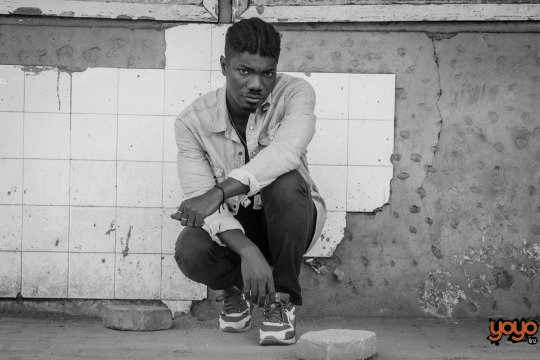
Who and what did you grow up listening to, in terms of music, stories etc.?
I grew up not listening to a lot of rap music at first, it was mostly Hi-life. Adofo, Sibo brothers, Nana Kwame Ampadu, and the likes. Until me and my friends started buying Obrafour, Lord Kenya and Kwaadee cassettes.
Which one would you rather hear at any given moment: Anansesem or Abakosem? Why?
I think there’s just a faint line between folktales and history; thus Anansesem and Abakosem respectively. Folktales is just another refreshing way of passing on history. As long as you appreciate history, you cant leave folktales behind. They work hand in hand.
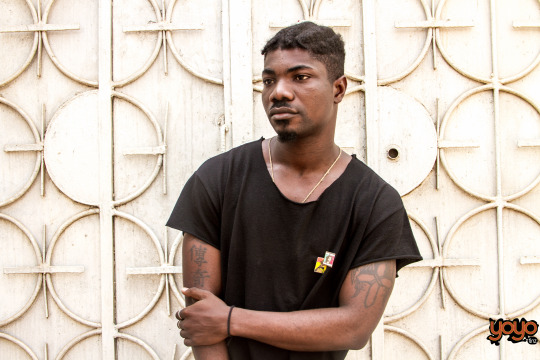
What does culture mean to you?
Culture is identity. Culture is who you’re, where you’re from and where you’re going. One is lost without his/her culture.
In your songs, you talk a lot about finding and being yourself- concepts that are -arguably- quite vague. What does finding and being oneself mean to you, personally?
That has to do with finding your balance as a human. Finding that sanity towards good and bad. Knowing when to err and when to forgive yourself.
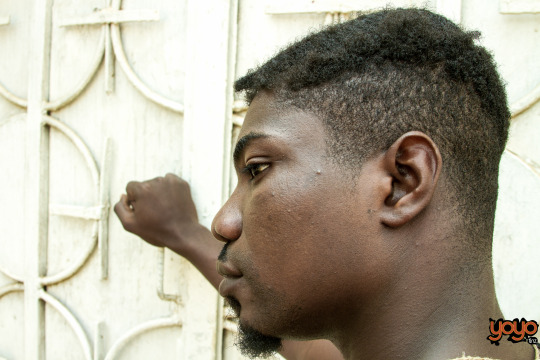
You’re very likely to come across as a somewhat philosophical person to anyone who listens deeply to your music. What are your philosophies of life? (Share at least one with us.)
As humans, we are highest in the order of creation, if i’m not wrong, and that’s instant blessing. We are powerful as human beings. Everyone with special powers. With that being said, what are we using these powers for ? Whats our purpose? What shall we leave behind when our world comes to an end ?
What compels you to use your craft as a medium of being an ambassador for Ebibiman?
I have to stand for something. Especially now that Ebibiman is loosing her kids to foreign influences. Its such a shame. What happened to our story? The culture, the taboos, the manners that makes us unique amongst other? And i want my music to send a message. I cant send any message better than the one i know. So i’m sharing the stories of our people with the next brother listening, so we can strengthen our roots. Cuz as i said, if we loose the culture, we are doomed.
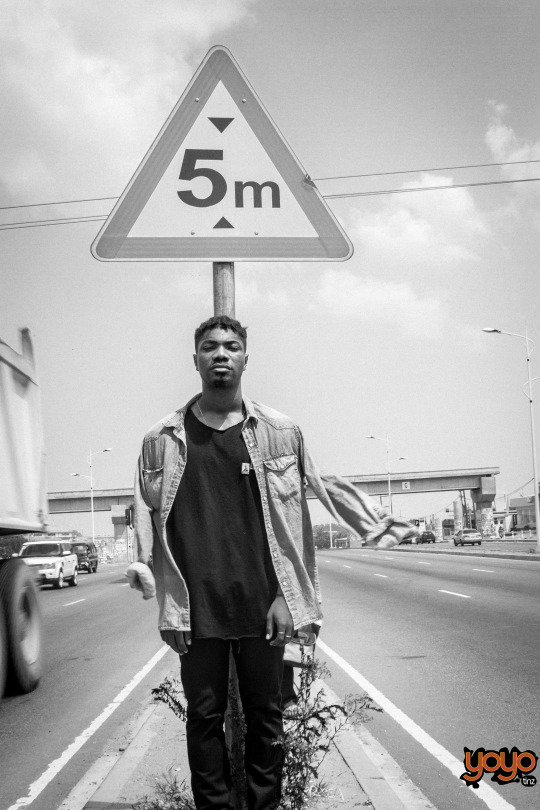
How important is it to you that your music is utilitarian as opposed to making it just for making music sake?
Very important cuz I know someone is listening and looking at me. One day when i have kids, my little brother and sister, the young kid in my area, walking like i do, dressing like i do, i mean, looking up to me, if i fall, they fall. What am i teaching them ? I’m blessed with rap, what am i rapping about? I cant afford to rap just for rapping sake.
Kwame Nkrumah is referenced a good number of times in your music. What do you make of the man, his ideologies and his 9 year reign as leader of Ghana?
Oh yes. Nkrumah, one of the greatest to ever do it, and he happens to be one of my own kind. I look up to his legacy. He is a good example of a role model. His leadership, foresight and all. He lived a good life despite his flaws as a human. He left behind traits of good leadership worth following. He is one of the people i look up to as far as leadership is concerned.
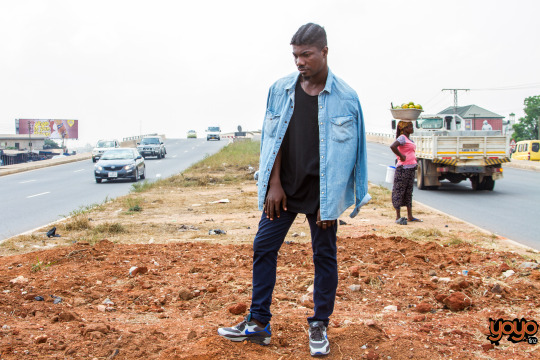
If you had the chance to say just one thing to President Mahama, what would that be?
I’m not a politics person. I don’t know much about Mahama as a president but I think presidency is a big task, the entire country looking up to you is so much work. I think he should do all he can to serve the people of Ghana.
In one sentence, say anything at all about the art/act of tattooing.
Tattoo is another form of art. Body art actually. You go through pain to wear a tattoo, so if you wear one, it should definitely mean something important.
On one of your songs, you rap about how you hate rules. Add to that, most of the “akorabone” tales/references in your songs and one gets the impression that your life-or at least your childhood- was one of rebellion and of being unconventional and misunderstood. How true would that be, and where (+ when) did rap come in in all this?
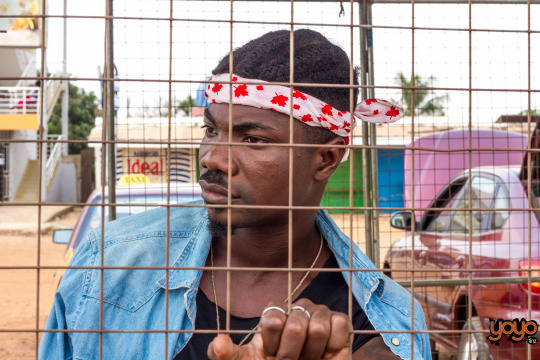
Hahahahaha. I grew up rather calm and docile and that was how i was raised. We had this notion in our family, to be calm, cool and accept things how they were offered. I’m still cool tho hehe. Until i started asking questions, feeding my curiosity and standing for who I’m rather than who people thought I’m and should be. I mean, using music to express my thoughts and ideas. And that has been my biggest challenge. So the “Akorabone” reference, is standing for the new me, and questioning the rules we are made to obey.
Again and again, you say in your songs that you aren’t primarily in the game to sell or for the ‘frivolities’(for want of a better word.) Quite a number of artistes have surfaced making substantive, progressive music,only to find that route too 'long’ and 'dry’ and then succumb to making mainstream (most often, dance) music in the hopes that they get the fans, fame, money etc. they weren’t getting before. DIs there any possibility of Akan becoming one of such artistes?
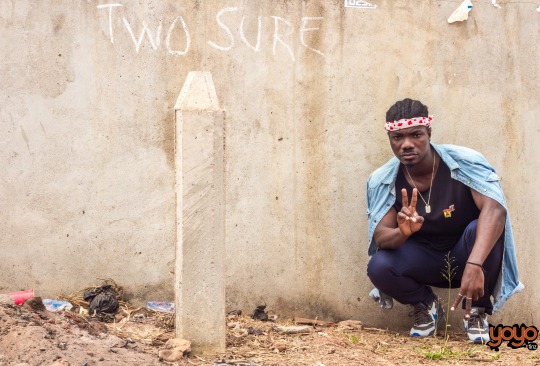
You know, we all aim at becoming successful people, thats a universal dream. I mean the fame and wealth is no bad thing. Money is important for living. But lets check the successful X we want to be, the details of one’s success. I aim at inspiring people with my music and i want to be the successful musician who inspired people with his music. One thing about music is, when its good enough, no matter the genre, more people will eventually love it. And the reward ? of course, a good work done deserves a good pay so no need to divert at all.
What are the future project you are -and those that you will be- working on?
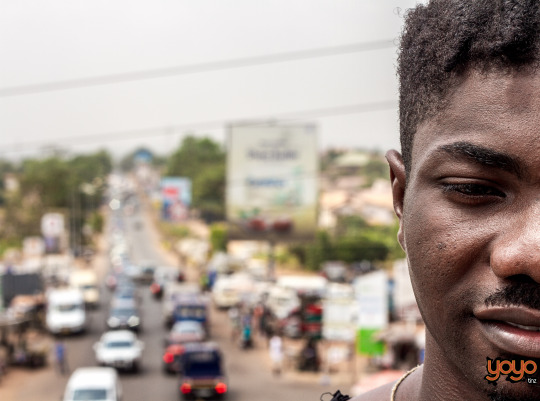
I think Akan E.P is gradually winning some new ears, people needs some good time to digest and get along with it, so I’m focused on getting as many people as possible to hear it but there is surely going to be something after Akan E.P.
Rap music is not……
about negativity
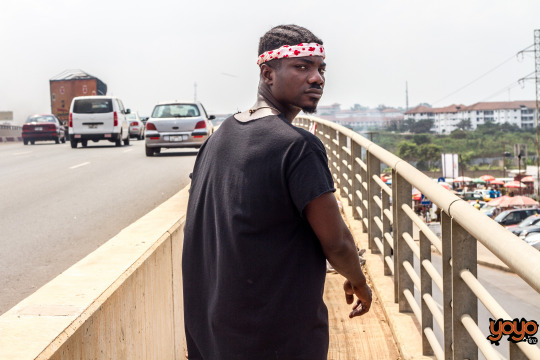
(Note: The terms “Black” and “African” are used interchangeably in this piece for contextualisation purposes.)
In 2001, Obrafour-arguably the most popular rapper in Ghana then- released his second album, Asem Sebe. On this album was the very popular love song, Odo. On Odo, Obrafour was basically professing his profound love for a certain Yaayaa Serwaa- a black woman, undoubtedly. (I would say ‘arguably’, but the video clarifies things.) In 2015, Sarkodiereleased his fourth album, Mary, and one of the numerous love songs on this album was ‘Always on my Mind’ (which incidentally featured Obrafour) and on it, Sark too was expressing his deep love for a black woman named Abena Amponsah. These two songs have a very curious and interesting thing in common: the rappers referring to these (black) love interests of theirs as white people, as a form of extollation and as terms of endearment- so we had Obrafour calling Yaayaa his 'white person’-mi broni, and Sarkodie calling Abena a 'black-white person’- tuntum broni.
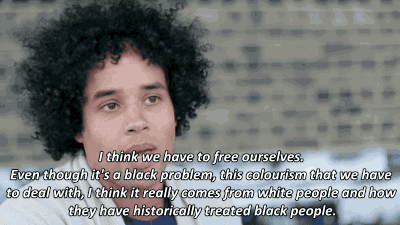
In attempting to make a case for this very worrying situation, someone once responded to these observations saying something like, “perhaps, they’re only using the (o)broni term figuratively,” and i retorted, “that is exactly the problem.”
That whiteness has to be called upon to validate the beauty of a black woman. That whiteness has to be the standard, the default, the epitome when we’re talking about beauty and admiration. That a beautiful black woman can’t be just that -a beautiful black woman- without being referred to as a ’(black)-white’ person.
The fact of the matter is that this most unfortunate phenomenon is deeply rooted in colourism, and much deeper in the colonial experience. Simply, it is the reflection of a colonial mentality to have Africans feel the need to use phrases such as “mi broni” and “tuntum broni” to extol their love interests, who’re obviously African. After all, wasn’t it during the colonial experience that we were taught that everything 'white’ was aspirational, admirable, to be desired, and everything 'black’ on the other hand, disdainful, repulsive and to be abhorred?
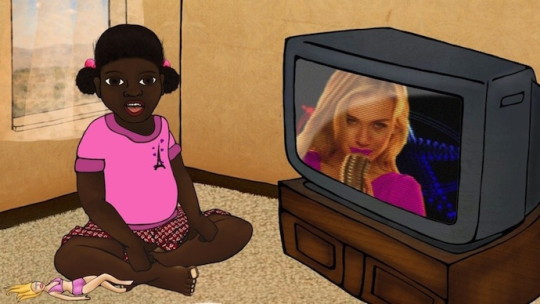
This colourist “broni” business is of course, not limited to rap-in fact, it is much more prevalent in highlife music. It is not even limited to the music scene, but actually spread across our whole society. (Isn’t our music generally reflective of our society?) But for the purposes of this blog, the focus will be on rap/hip hop music in Ghana.
In decrying this mentality that breeds acts such as skin bleaching, most of our rappers, in their token 'conscious’ songs, often miss the mark.
In an industry whose (biggest) voices still use such anti-black(skin) terms such as tuntum broni, in an industry where we’re most likely to have have light skinned women featuring in music videos, where musicians feel the need to brag about the fact that the woman they dating is biracial, in an industry that basically suggests that 'the lighter, the better’-and therefore reinforces colourist ideals, you do not go about barking at people who bleach their skins. However well-intentioned these efforts may be, there is nothing conscious about attacking people who in this case, bleach their skins. A deeper look at it though, would reveal something ahistorical and hypocritical, and everything unconscious, about it all.
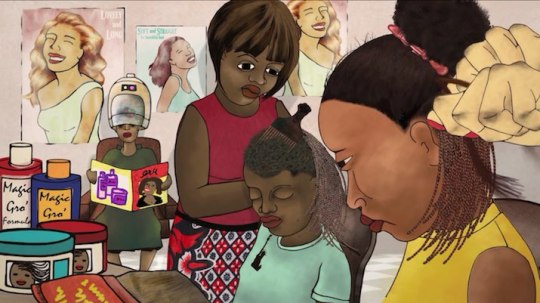
If artistes feel the need to make socially conscious and progressive songs (which is a very laudable thing), it is imperative that they educate themselves and also attack, instead of victims, the underlying ideas or structures that lead to whatever malaise within society they’re disgusted at. Unconsciously being part of a problem you cry against, is not cool. Neither is victim blaming.
In ‘Anthills of The Savannah,’ the late Chinua Achebe wrote a wonderful proverb. It says that “if you want to get to the root of murder, you have to look for the blacksmith who made the matchet.”
(Note: the last two photos are stills from this brilliant short film that explores colourism. Highly recommended.)
